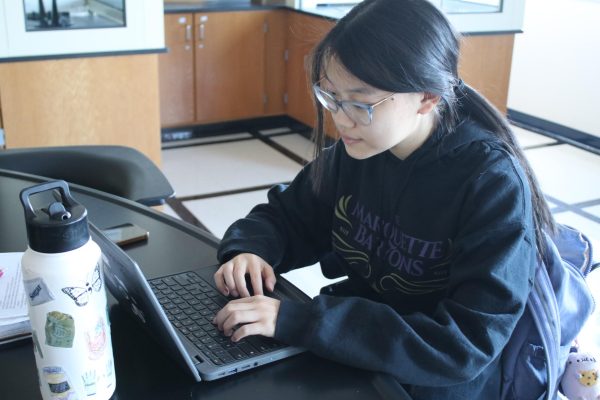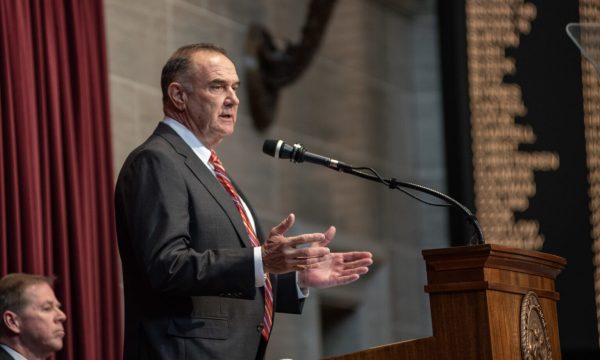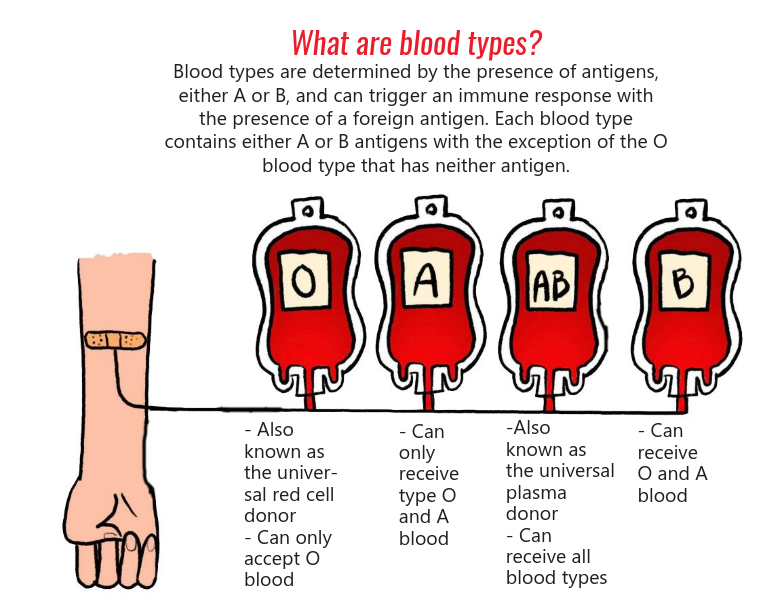Blood Shortage Impacts Local Communities
Media by Emma Tyulyayev
Along with the typical lecture on blood spatter and blood typing in forensics class, Dawna Barnhart, science teacher, incorporates information about a crucial issue: the national blood shortage.
The American Red Cross announced the country is undergoing one of the worst blood shortages in more than a decade, creating a delay in crucial blood transfusions for patients. The Red Cross provides up to 40 percent of the nation’s blood supply, and the shortage has led to blood banks reporting less than a day’s supply of some blood types, according to the organization.
“I think my job is just to make my students aware of things that our community needs,” Barnhart said. “And so our crisis with blood right now, that’s just one of those things.”
The current blood crisis stemmed specifically from the pandemic and harsh weather conditions inhibiting transportation to the blood drives. In fact, the rise in COVID-19 cases attributed to a 10% decline in the number of individuals donating blood, according to the Red Cross.
Barnhart said since the majority of her students are old enough to donate blood, she wants to inform her students of the crisis and encourage blood donation. If students had access to a blood drive at MHS, she said most of her students would donate.
Theresa Santos, senior and secretary of media, said the MHS National Honor Society (NHS) decided to host a blood drive this spring to improve students’ access to donation centers.
Santos said the goal of the blood drive was to donate to hospitals and to patients who are in need of blood for transfusions. The blood drive is also a yearly tradition for NHS.
“We decided to do a blood drive because we need to give back to our community,” Santos said. “It’s a certain way to donate something other than goods.”
As the Red Cross National Headquarters (NHQ) Intake Team Member, Michelle Cubero said her work connects thousands of Red Cross volunteers with links to the nearest blood drives to help mitigate the crisis. She offers Donor Ambassador (DA) positions to volunteers who sign up for shifts working blood drives and helps educate the DAs on how to support blood donors.
“Our work helps staff the nations’ blood drives to make it possible for people to donate blood to offset the blood shortage,” Cubero said.
Cubero said blood shortages happen from time to time, but the current crisis documents record lows with factors like the COVID-19 pandemic or the area of the country impacting the blood supply.
“Recently we’ve had tornados, blizzards and other natural disasters where a simple blood transfusion can save a person’s life,” Cubero said.
Cubero said she encourages individuals to get involved by signing up to volunteer at the American Red Cross, by donating blood by becoming a DA and staffing blood drives, or even assisting the National Scheduling Team (NST) by scheduling volunteers for shifts in blood drives.
“It’s no longer about us: it’s about the emergency itself and we are partnering up and teaming up,” Cubero said.
Margaret G’Sell, medical technologist at Mercy Hospital St. Louis, said the current blood crisis is concerning for numerous reasons, especially for patients needing trauma surgery or patients with acute blood loss.
Since type O blood is the universal donor to all blood types, G’Sell said the blood type is the lowest in supply which is potentially dangerous to babies and individuals needing emergency surgery.
Although Mercy Hospital does not order blood through the Red Cross, the blood shortage has impacted the elective surgery schedule, G’Sell said. Due to the increase in COVID cases, elective surgeries were pushed back. Blood donation was inhibited by the past snow days, but the elective surgeries will require additional blood requests.
In the future, the Red Cross requests the nation to “roll up a sleeve to help ensure people receive the care they need.” Those wishing to donate blood can visit www.redcross.org to find local blood drives.
Your donation will support the student journalists of Marquette High School. Your contribution will allow us to purchase equipment and cover our annual website hosting costs. You may become a PATRON by making a donation at one of these levels: White/$30, Green/$50, Blue/$100. Patron names will be published in the print newsmagazine, on the website and once per quarter on our social media accounts.

Akhila Swarna, senior, is the Associate Editor of the Marquette Messenger. She enjoys participating in Speech and Debate, HOSA, and Red Cross. Outside...

Emma Tyulyayev is an Illustrator for the Marquette Messenger. This is her second year on staff. After school, she enjoys driving around and going on frequent...







